By Elder Asu Beks
Mr President,on behalf of the Maritime Elders Forum and entire maritime stakeholders, i respectfully send you season’s greetings.
There is no doubt, Mr President, that 2025 has been one of the most turbulent and challenging years in the history of our nation.
From the wave of insecurity ,which you have tackled squarely,to the far reaching economic reforms which has translated to the tax reform bills , are all pointers to the fact that you are taking the challenges head on.
Mr President , your modest achievements in the Oil and Gas sector are also there for all to see.
From the bold decision to abolish fuel subsidy to the increase in daily production levels to an average 1.8m bpd ,from about 1mbpd daily output as at May ,2023, and the complete disapperance of fuel queues, it is certain, Mr President, that you are building a legacy of renewed hope, unprecedented in the life of our nation.
We cannot thank you enough, Mr President.
For us in the maritime sector, the most profound of your score card remains the creation of a specialised Ministry of Marine and Blue Economy.
The demand for a Ministry to oversee Nigeria’s vast maritime domain is as old as Nigeria’s Independence.
For us as critical stakeholders, this couldnt have come at a better time.
In just two years of the creation of this specialised Ministry, Nigerians are already reaping bountifully from this innovative move.
Only last month,Nigeria won an election into the elusive category ” C” of the International Maritime Organisation, (IMO).
This victory is coming after nine unsuccessful attempts, spanning 14 years.
With this victory , which couldn’t have been posible without your fatherly role,our fortunes as one of the greatest maritime nations in sub saharan Africa has been solidified.
Mr President, another milestone recorded under your watch ,since the creation of the Ministry of Marine and Blue Economy is the introduction of the game changing National Single Window platform which comes into effect in the first quarter of 2026.
The National Single Window is a trade facilitation tool designed to eliminate multiple entries by various regulatory bodies in business transactions in our seaports.
In other words, it is a digitalized platform that allows importers and exporters to submit all necessary documents, permits , and data to multiple government agencies through a single entry point.
Mr President, with these developments, you have etched your name as “the President who saw tomorrow” by demonstrating in concrete terms, the enormous potentials which this sector holds as your administration continues to look at a Nigeria beyond oil.
In this regard, Mr President ,we the Maritime Elders Forum urge you ,without delay to sign into law, the Nigerian Shipping and Port Regulatory Agency (NPERA) Bill .
The NPERA Bill aims to transform the Nigerian Shippers Council, (NSC) into a powerful, independent economic regulator for Nigeria’s Ports,creating a strong frame work for tariffs,fair competition and efficiency after port concession.
The Bill, a brain child of Dr Tajudeen Abass, Speaker, Federal House of Representatives, is aimed to fill the vacuum created by an absence of a regulatory agency in such a critical sector of our national economy ,as against other sectors such as banking, petroleum , energy and communication.
This critical Bill seeks to repeal the old Nigerian Shippers Council Act and empower the Council to manage port economic activities, boosting the Blue Economy.
Mr President, the laudable objectives of this Bill include;establishing an independent regulation to create a strong legally backed economic regulator for our ports; Control tariffs, charges and regulate port charges in such a manner as to prevent arbitrariness and ensure fairness; to promote fair competition by improving overall port operations and attract investment; Support the Blue Economy to align with our national goals for developing Nigeria’s Marine Economy.
Your Excellency Sir, this Bill was given an accelerated hearing ,and was passed by both chambers of the National Assembly on April 10, 2025 upon which it was forwarded to you for assent.
Mr President sir, the delay or your failure to assent to this Bill is coming at huge cost and has resulted in significant economic losses for Nigeria, primarily by perpetuating an unregulated and inefficient port system that has led to huge financial leakages that deter investment.
Mr President, sir, it is estimated that the nation is losing billions of dollars dailly to the absence of a strong legal frame work for port economic regulation.
We have on good authority, Mr President, that this obvious lack or absence of a regulated ports industry is also taking a huge toll on local and foreign investments as an estimated $250b is said to be lost annually, aside arbitrary charges by terminal operators and Shipping Lines .
In a nutshell, Mr President, the envisaged benefits of this brand new Ministry of Marine and Blue Economy has been eroded on account of the absence of a legal regulatory frame work.
As it stands, sir ,a Ministry of Marine and Blue Economy without an Economic Regulator is akin to a football game without a referee.
it means anything goes and the out come of a game without an official umpire could be better imagined.
Mr President sir, consequently ,the time to sign the NPERA Bill is now.
Thank you Mr President for listening to this passionate appeal.
Let this be your new year present to Maritime Stakeholders.
ELDER ASU BEKS, CONVENER, MARITIME ELDERS FORUM, LAGOS
Like this:
Like Loading...


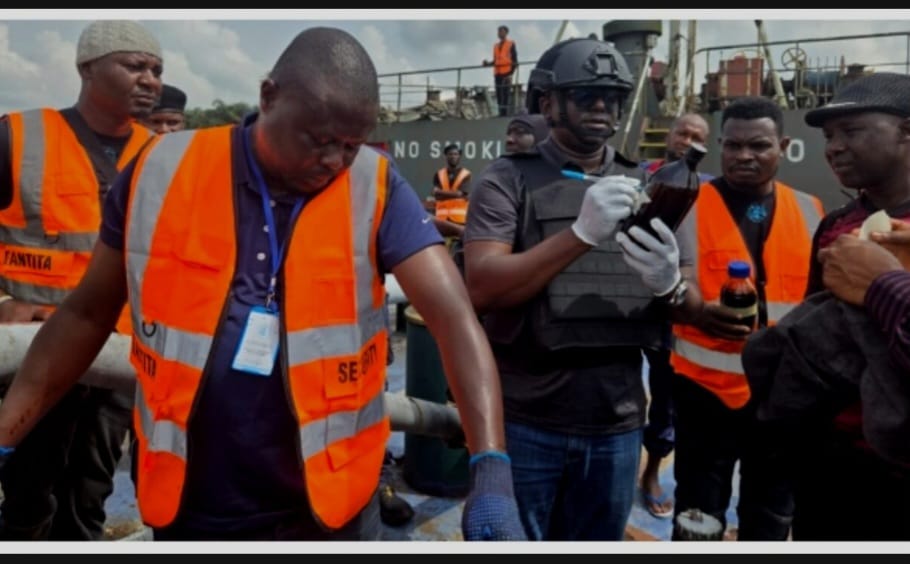

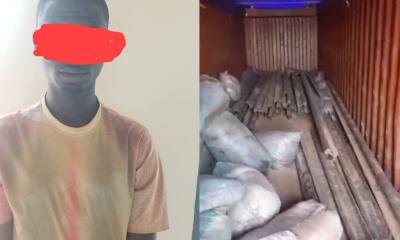
 Headlines2 months ago
Headlines2 months ago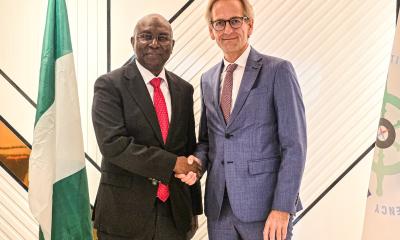
 Headlines2 months ago
Headlines2 months ago
 Headlines4 weeks ago
Headlines4 weeks ago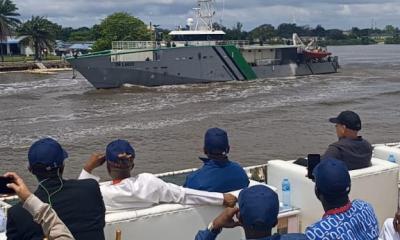
 Headlines3 months ago
Headlines3 months ago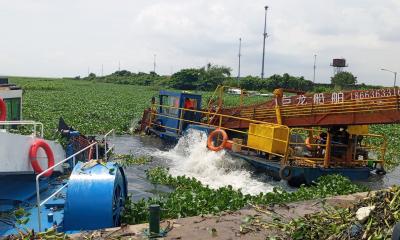
 Headlines2 months ago
Headlines2 months ago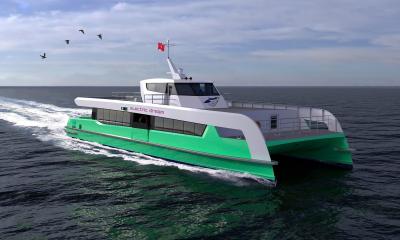
 Headlines3 months ago
Headlines3 months ago
